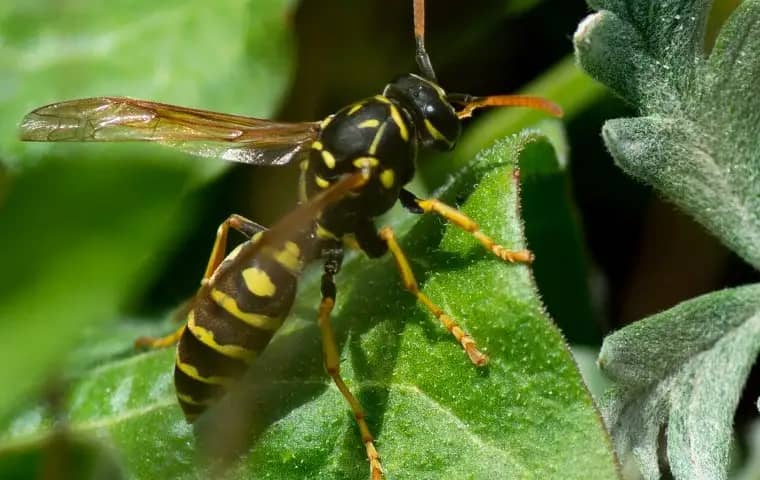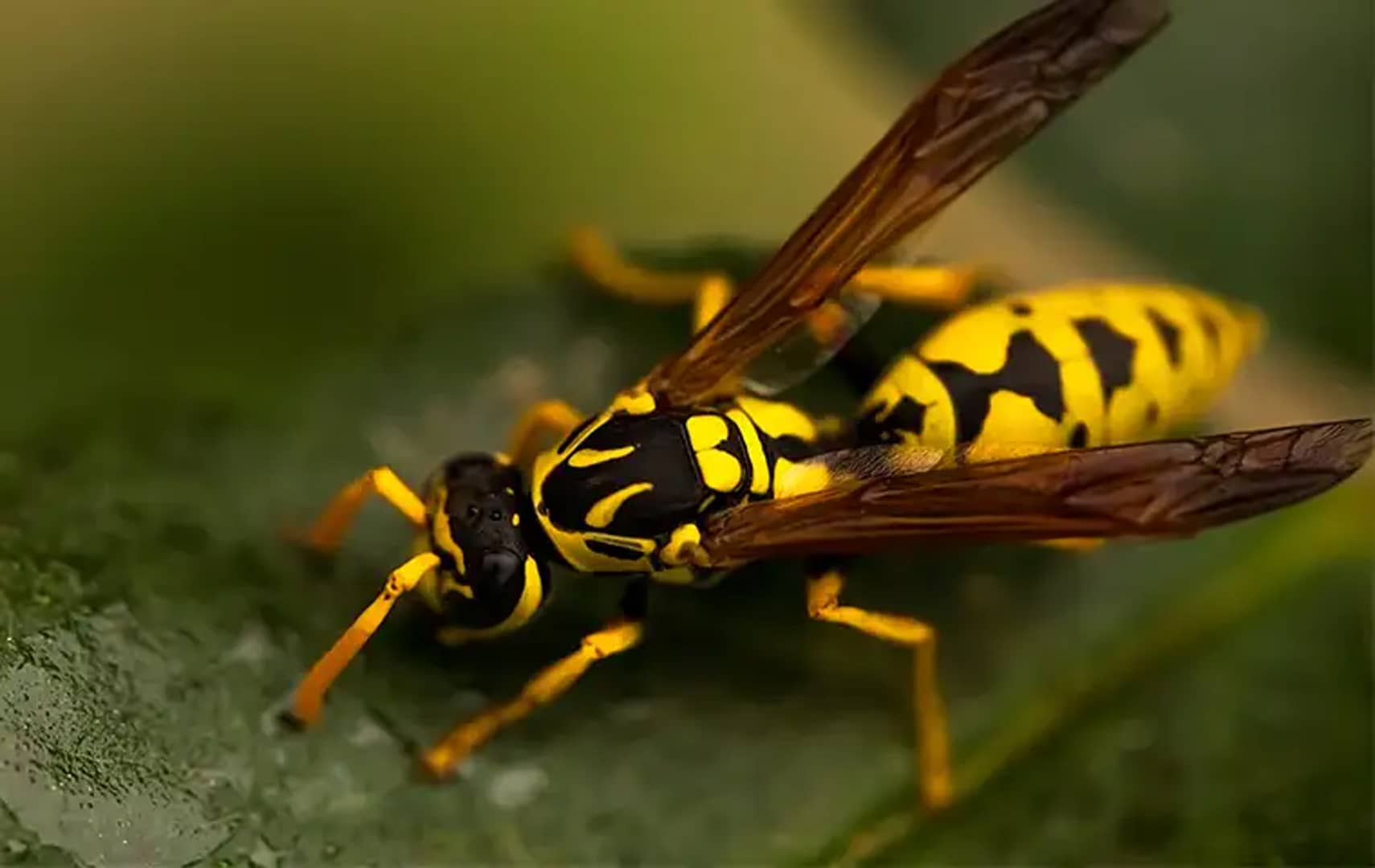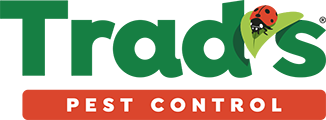- Paper wasps: Paper wasps get their name from the paper-like material that they build their nests out of. Their coloring can vary, but most paper wasps are brown with red or yellow markings. Their nests often resemble upside-down umbrellas, and up to 250 wasps can live in each one.
- Mud daubers: With elongated, thin bodies and black coloring, mud daubers are less aggressive than most wasps but will sting if they feel threatened or cornered. It’s more common for mud daubers to sting and paralyze spiders, and you can recognize their presence by the hole they create in the mud.
- Cicada killers: Growing up to two inches long as females, cicada killers are some of the biggest wasps you’ll find in Jacksonville. These wasps typically have brown coloring with orange or red legs and large bodies. While they may pack a powerful sting, cicada killers don’t have the same instincts for guarding their nests as yellowjackets or paper wasps do, so they don’t sting often.
- Yellowjackets: Not only can they live in colonies with tens of thousands, but yellowjackets can be aggressive about defending their homes and nests. They also don’t have barbed stingers, which means they can sting repeatedly.
Even if wasps haven’t become a problem on your Jacksonville property yet, that doesn’t mean they won’t become one. Here’s what local residents and homeowners should know about what attracts wasps to your yard, how you can repel them naturally, and what to do if you’ve got an existing wasp problem.
- Sugary drinks and sweets: Sugary beverages and sweet foods, like fruit or leftover dessert, can bring wasps in.
- Food: While they hunt in the spring and summer, wasps are always on the lookout for protein-rich foods like leftover meat or scraps in your garbage can.
- Flowering plants: The sweet fragrance of flowers and their nectar can be another draw for wasps. They’re often attracted to yards with thriving gardens and flowering plants.

How To Repel Wasps In Jacksonville
Since wasps are be attracted to sugar, meat, and flowers, there are some steps you can take to keep these attractions out of your yard and repel wasps for good, including:
- Don’t leave leftover food and scraps sitting in your yard.
- Regularly empty outside garbage bins before they’re overflowing or full enough to attract wasps.
- Try to be mindful about planting flowers too close to your home; the farther away your garden is, the better.
- Regularly inspect areas where wasps may try to build their nests, like under eaves, porches, inside trees, shrubs, or even holes in the ground.
- Don’t leave sunken holes or cavities in your yard, as this can be a popular spot for yellowjackets to create their nests.
- Grow plants that can repel wasps, like spearmint, thyme, lemongrass, citronella, and eucalyptus, in your garden and around your home.
How To Deal With An Existing Wasp Problem In Jacksonville

With years of experience serving the Jacksonville area, we’re equipped to handle even the most out-of-control wasp infestations. If you suspect that you’ve got a wasp nest on your property, you shouldn’t put yourself or your family at risk. Call us today at Trad’s Pest Control to schedule an inspection or learn more about how our wasp control services work.
